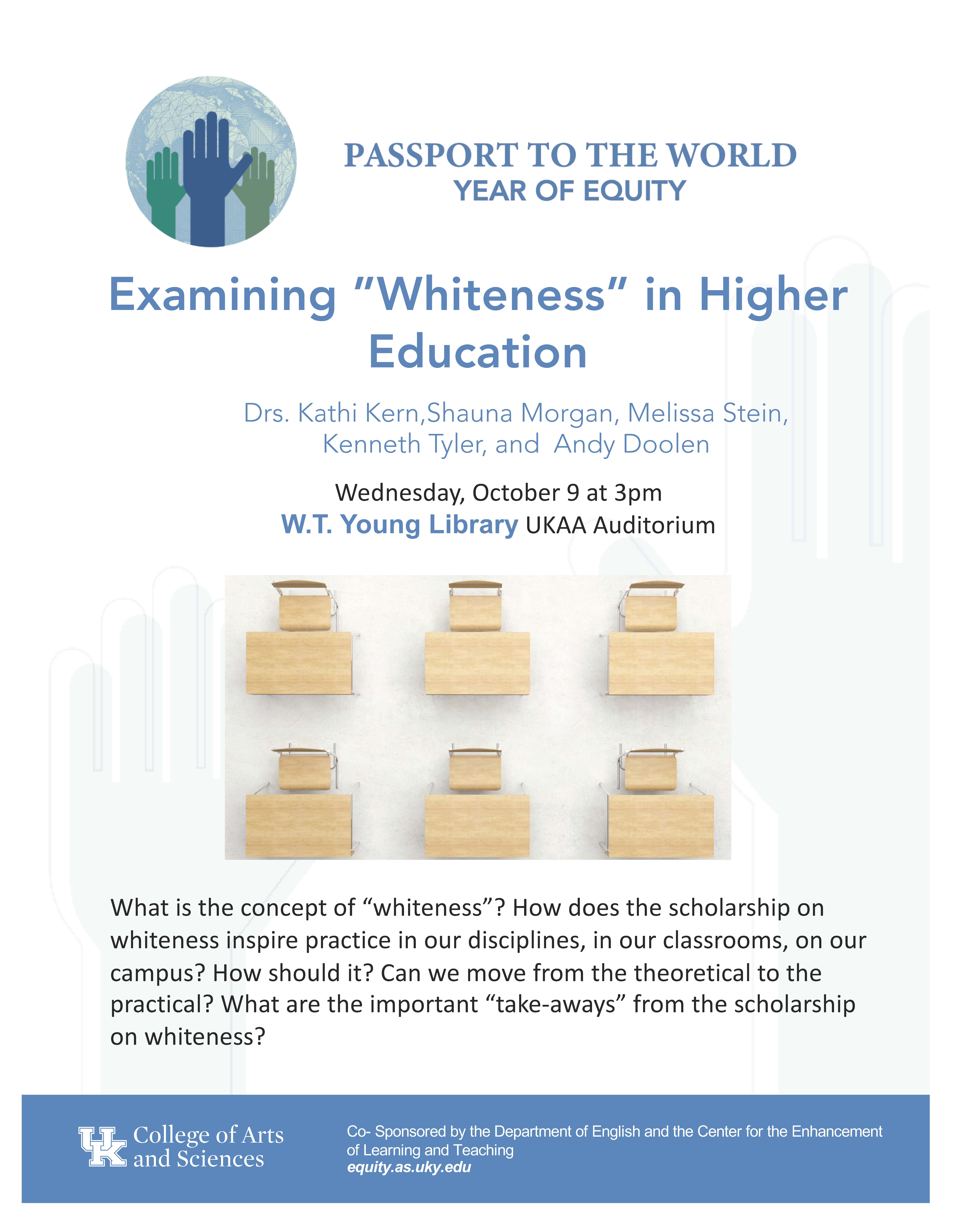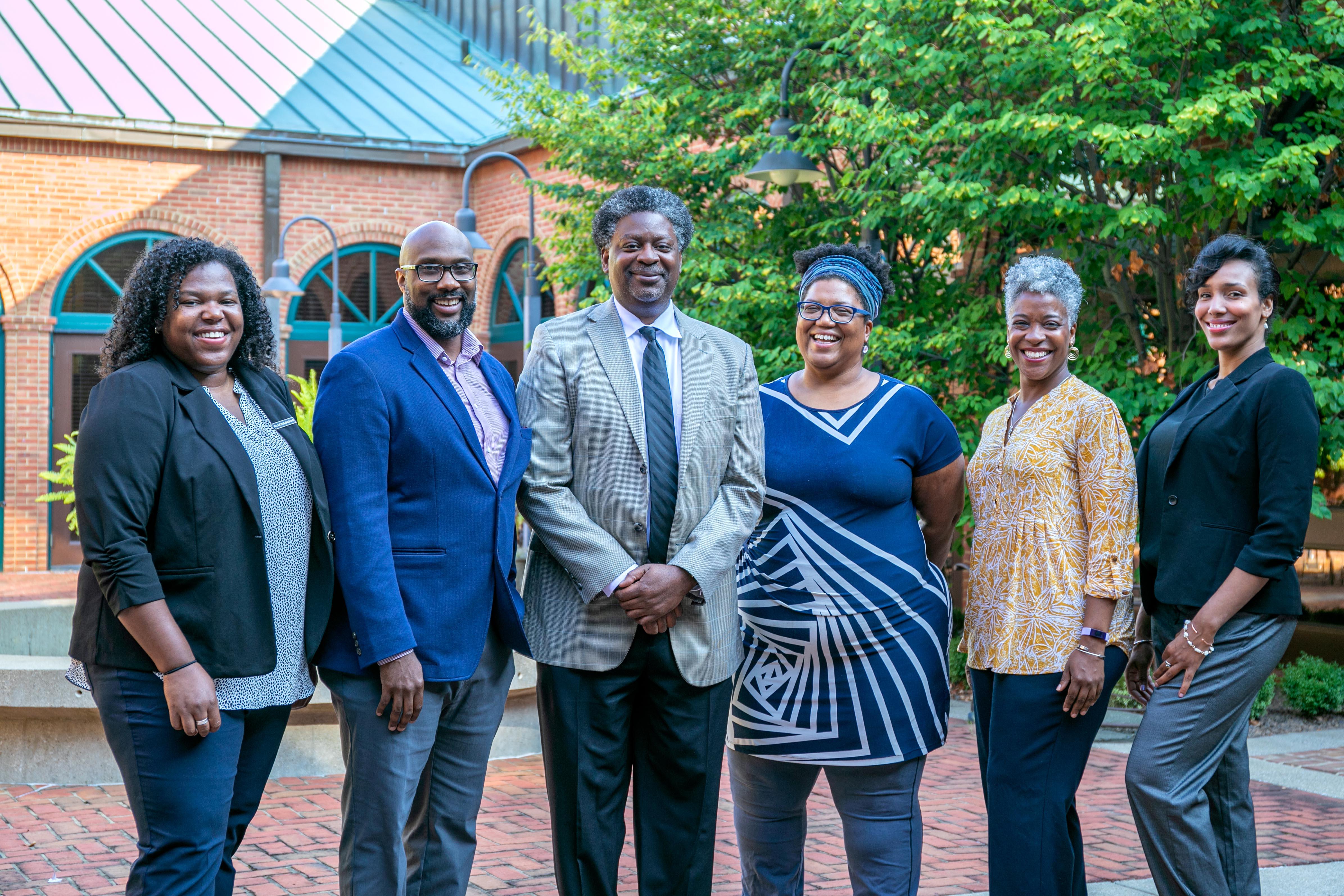Anthropology Graduate Student Association Distinguished Lecture Series
Every year, the Anthropology Graduate Student Association (AGSA) invites an outstanding anthropologist from outside the university to give a public talk as part of our Distinguished Lecturer Series. For 2020, we are pleased to host Dr. Khiara Bridges, Professor at the University of California at Berkeley School of Law and former Associate Dean of Equity, Justice, and Engagement at Boston University.
Khiara M. Bridges is a professor of law at UC Berkeley School of Law. She has written many articles concerning, race, class, reproductive rights, and the intersection of the three. Her scholarship has appeared or will soon appear in the Harvard Law Review, Stanford Law Review, the Columbia Law Review, the California Law Review, and the Virginia Law Review, among others. She is also the author of three books: Reproducing Race: An Ethnography of Pregnancy as a Site of Racialization (2011), The Poverty of Privacy Rights (2017), and Critical Race Theory: A Primer (2019). She is a coeditor of a reproductive justice book series that is published under the imprint of the University of California Press.
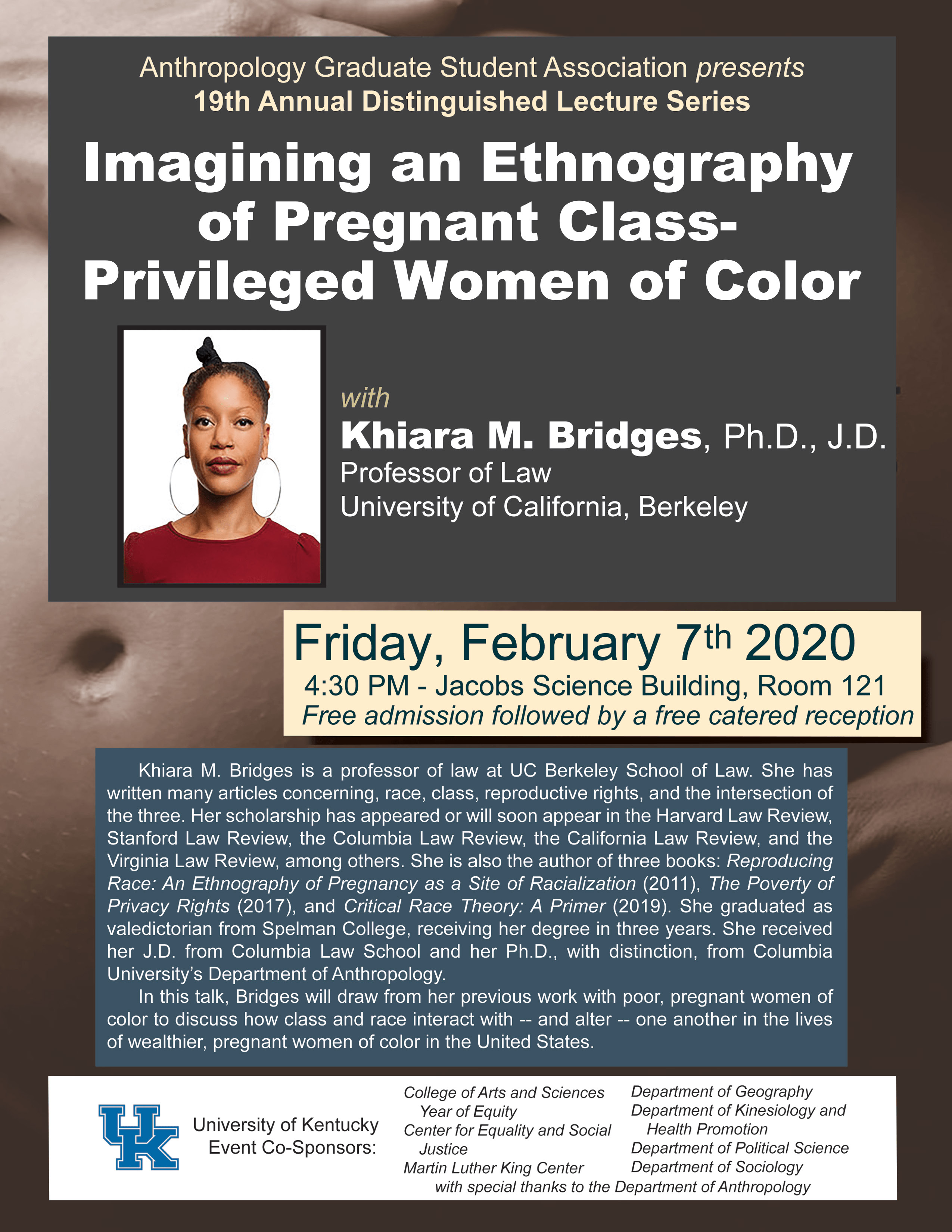

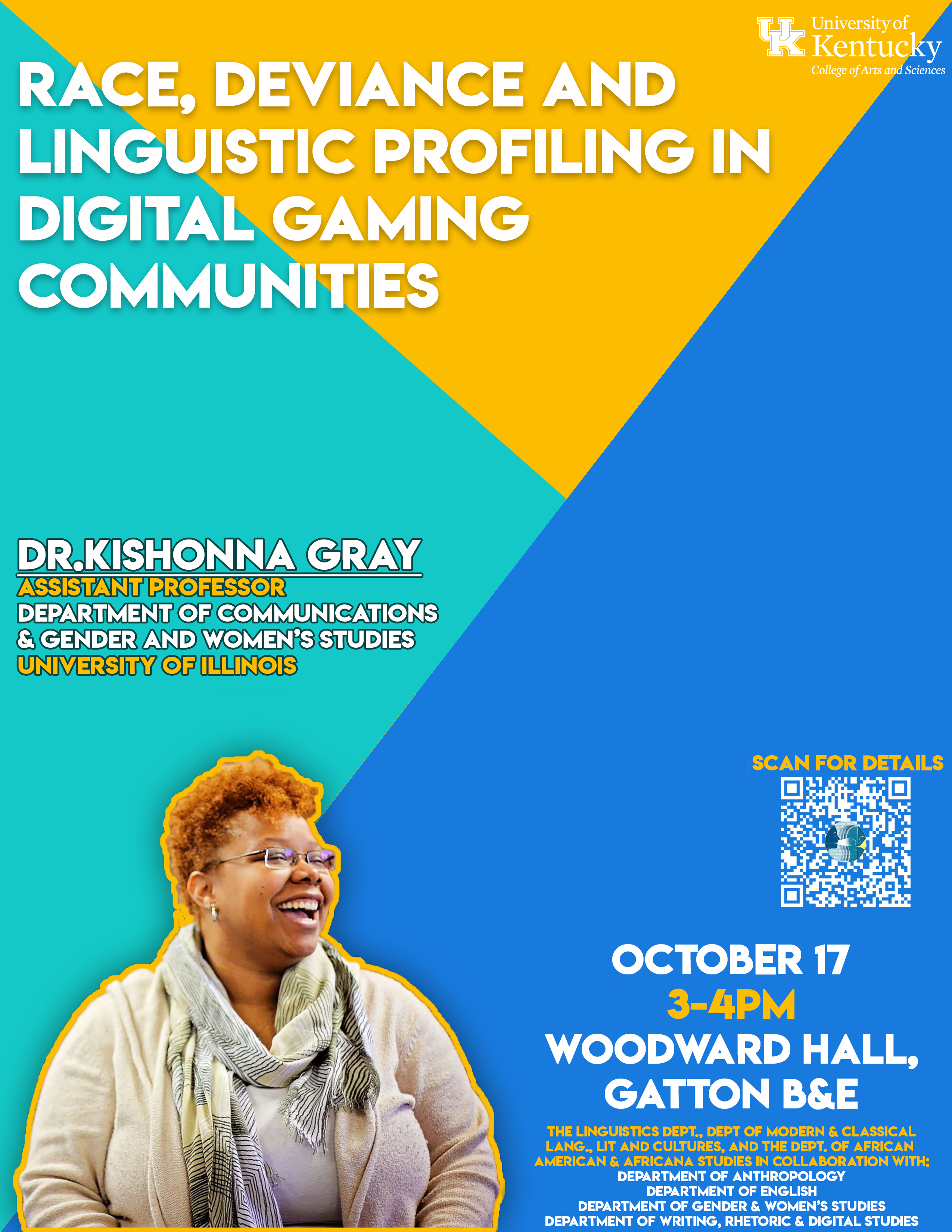
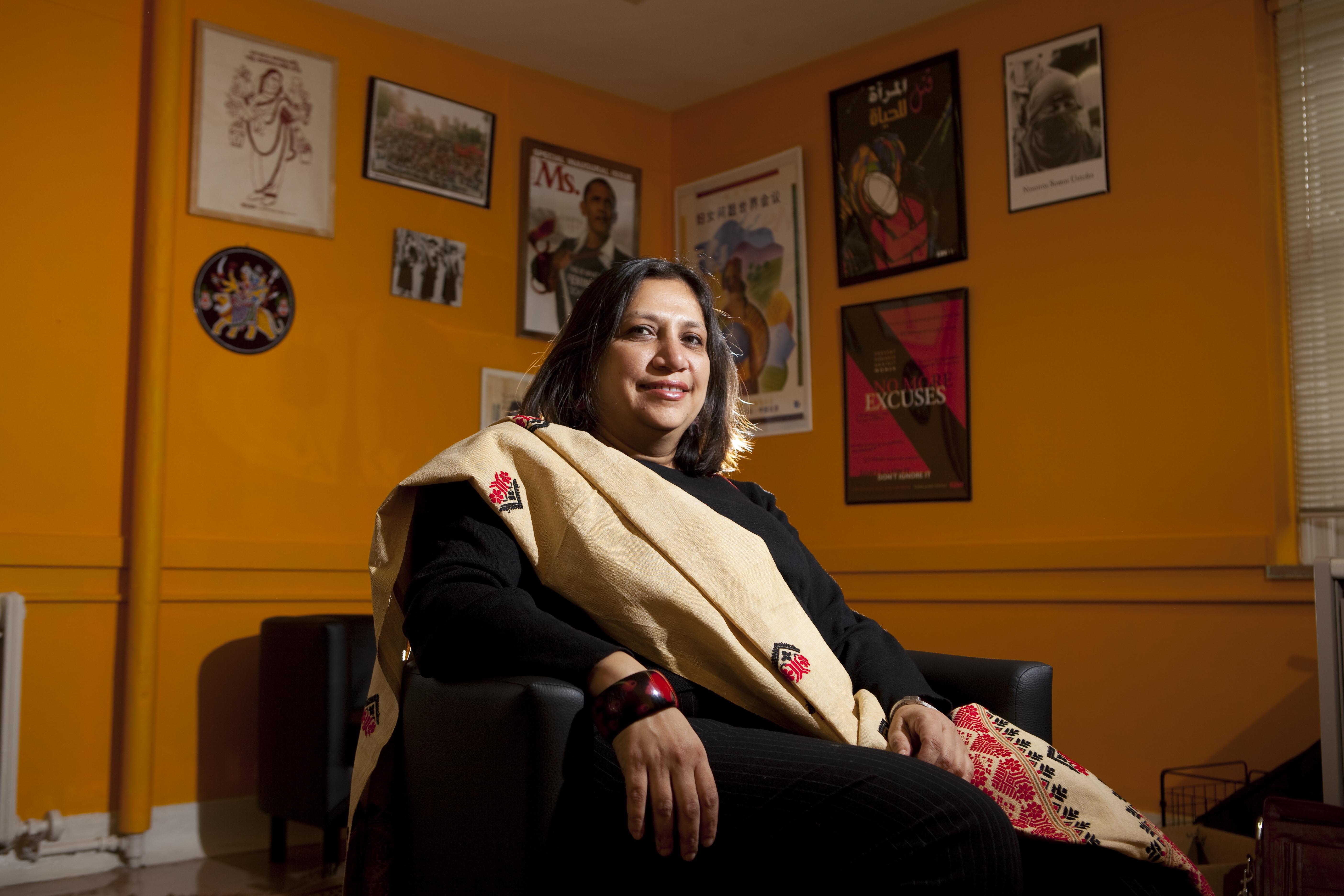 The University of Kentucky prides itself on housing a diverse faculty whose work is rewarded with numerous achievements. Srimati Basu, an Associate Professor in
The University of Kentucky prides itself on housing a diverse faculty whose work is rewarded with numerous achievements. Srimati Basu, an Associate Professor in 